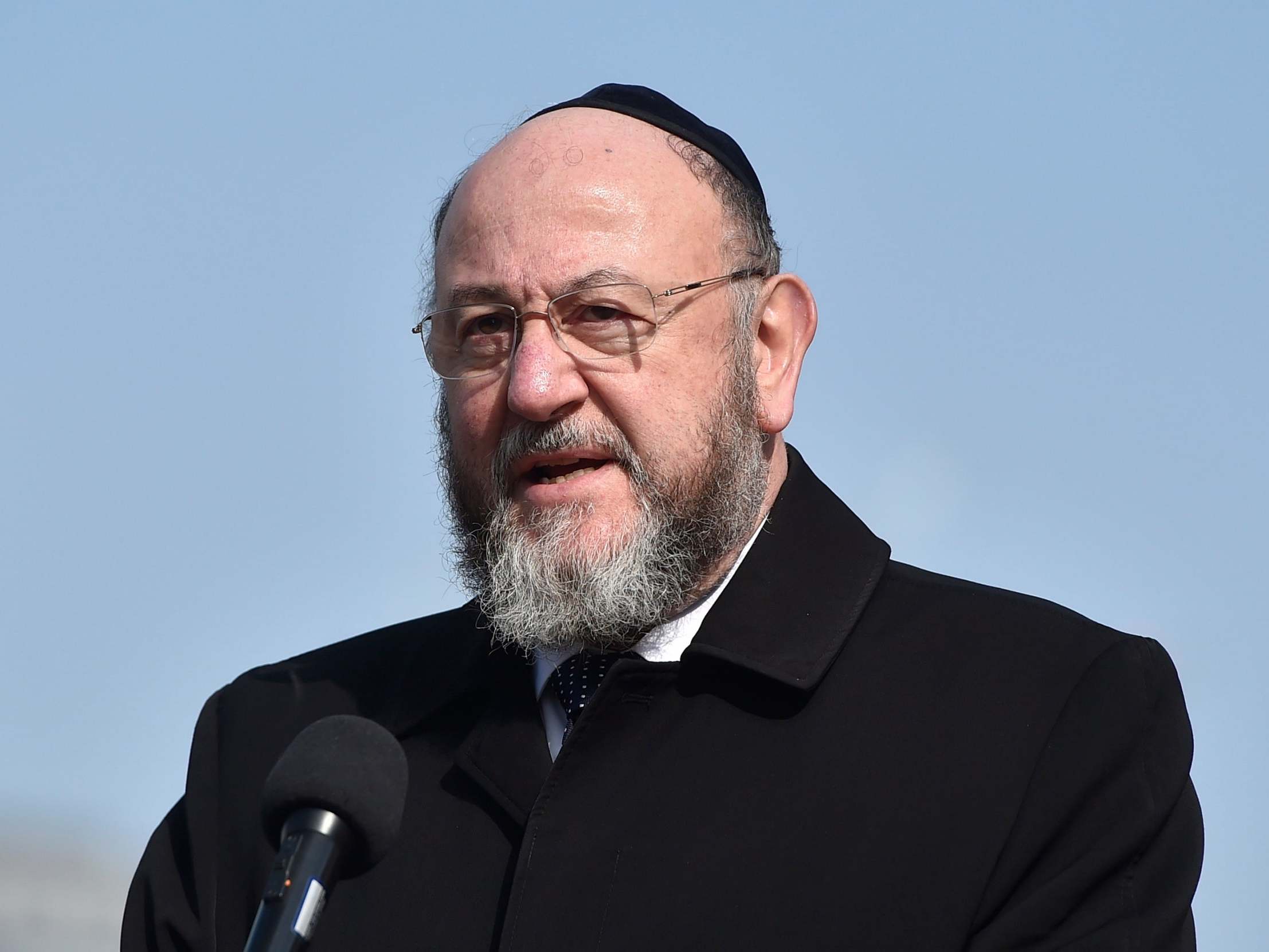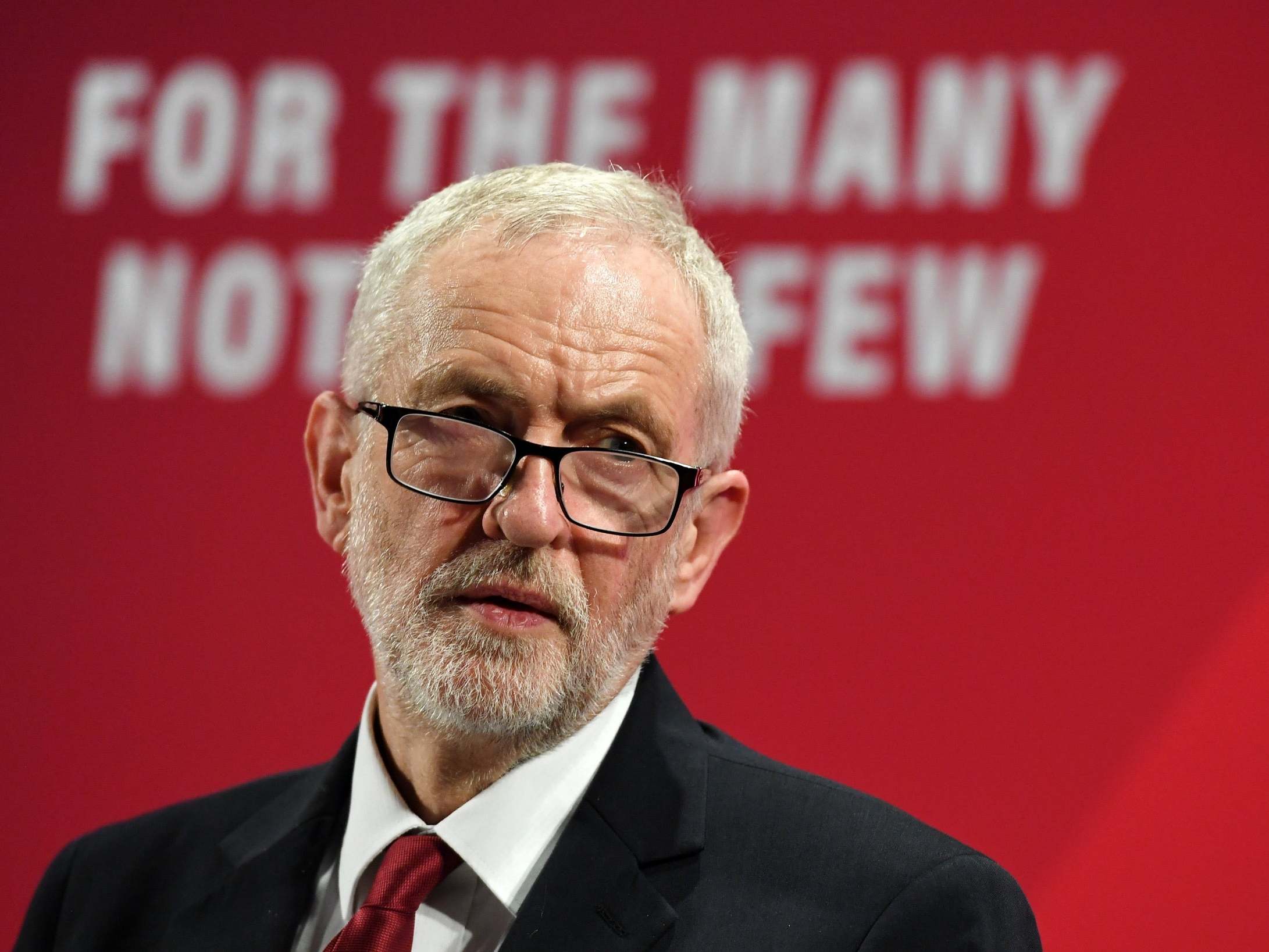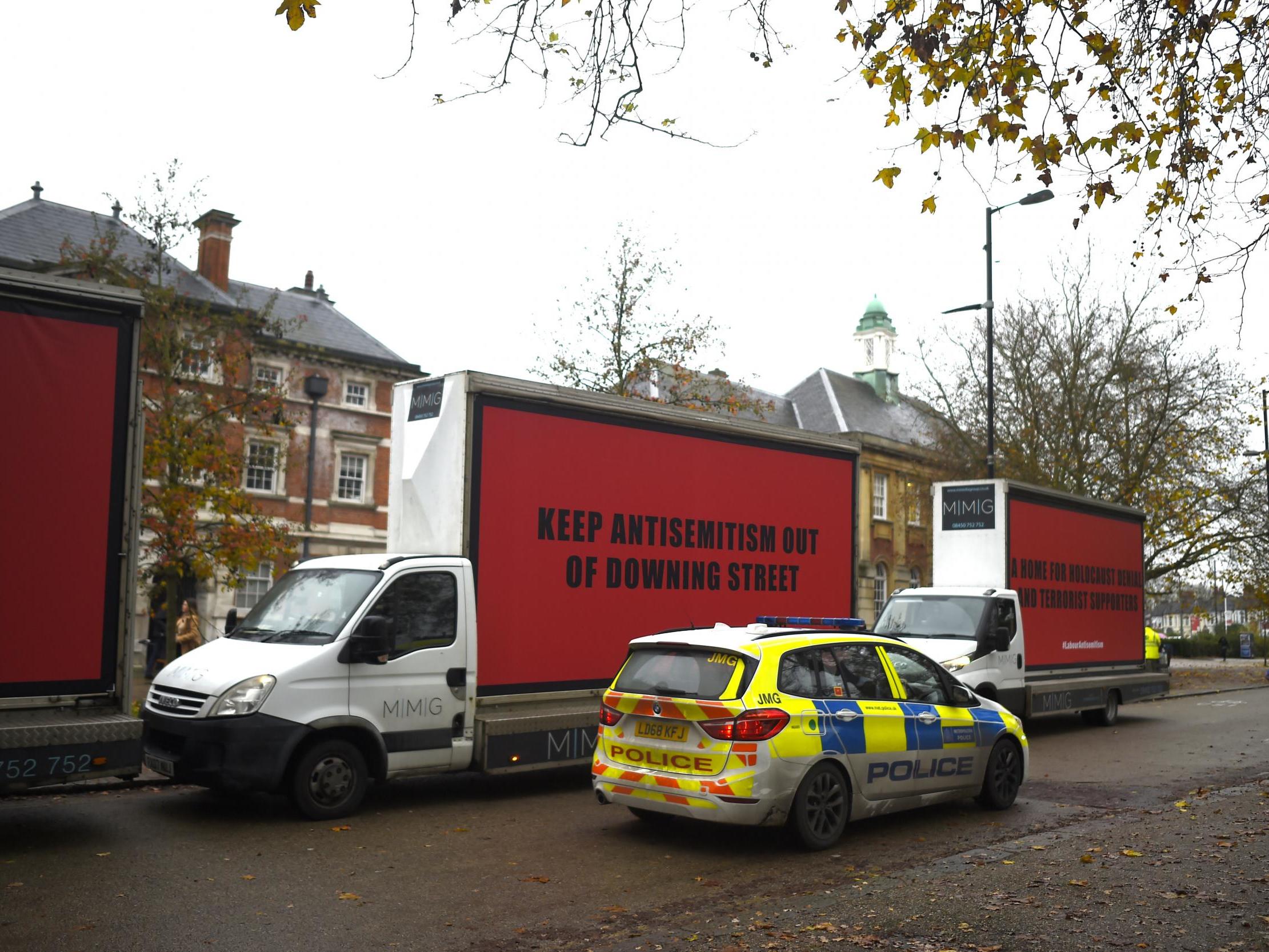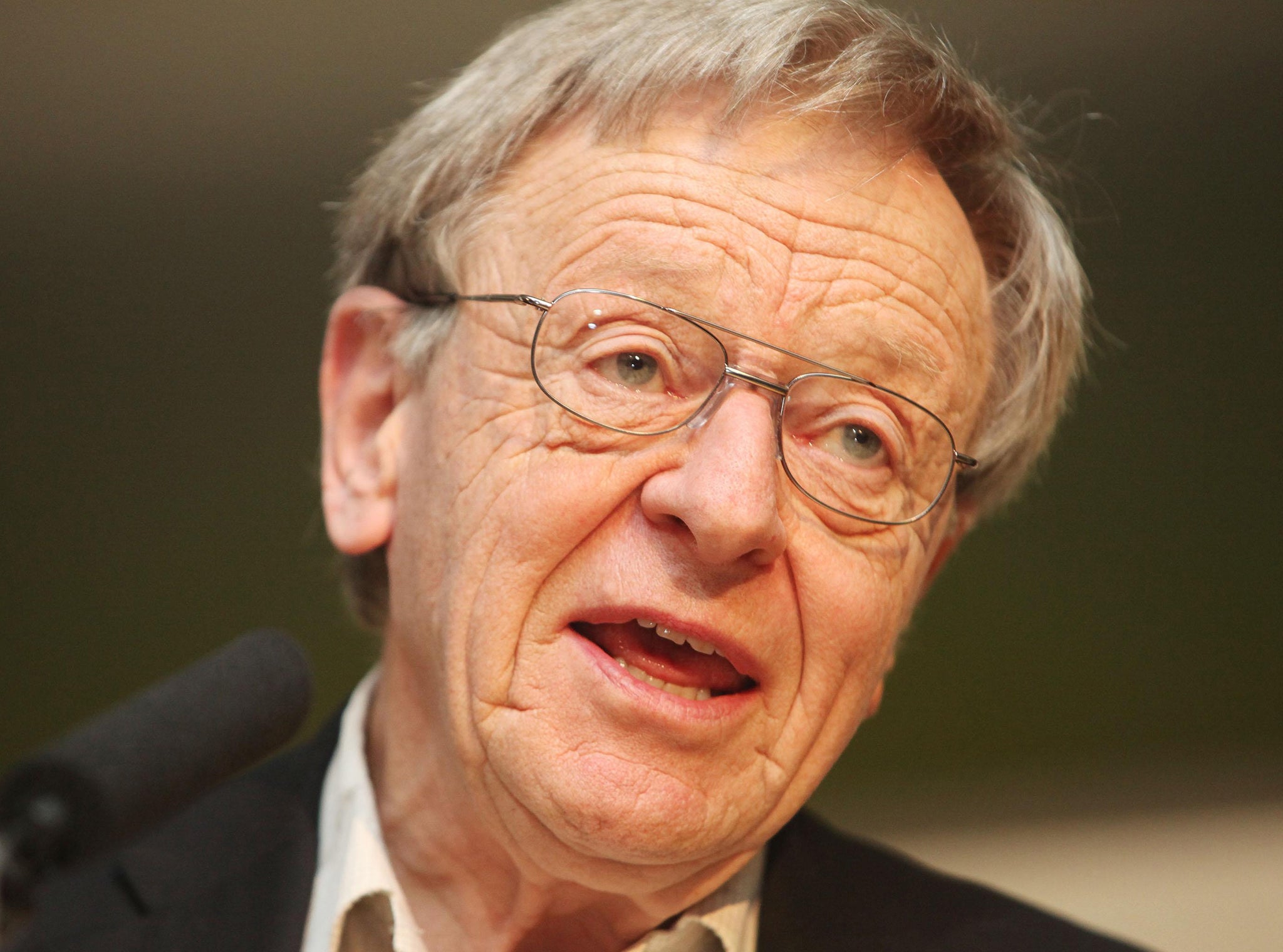Labour peer says party deserved brutal attack over antisemitism 'failure' by Chief Rabbi
Lord Falconer says 'hundreds, maybe thousands' of antisemitism cases need to be investigated
Your support helps us to tell the story
From reproductive rights to climate change to Big Tech, The Independent is on the ground when the story is developing. Whether it's investigating the financials of Elon Musk's pro-Trump PAC or producing our latest documentary, 'The A Word', which shines a light on the American women fighting for reproductive rights, we know how important it is to parse out the facts from the messaging.
At such a critical moment in US history, we need reporters on the ground. Your donation allows us to keep sending journalists to speak to both sides of the story.
The Independent is trusted by Americans across the entire political spectrum. And unlike many other quality news outlets, we choose not to lock Americans out of our reporting and analysis with paywalls. We believe quality journalism should be available to everyone, paid for by those who can afford it.
Your support makes all the difference.A Labour peer who was asked by Jeremy Corbyn to carry out an inquiry into the handling of antisemitism has said the party “deserved” a brutal attack unleashed by the Chief Rabbi.
Former Lord Chancellor Lord Falconer said there has been a “failure of leadership”, with 130 antisemitism inquiries still incomplete and “hundreds, maybe thousands” more cases that should be investigated.
Lord Falconer spoke out following Chief Rabbi Ephraim Mirvis’s unprecedented public warning that Mr Corbyn’s failure to tackle antisemitism within his own party made him unfit to be prime minister.
Mr Mirvis said he had decided to break with convention and intervene in politics ahead of the general election because “the very soul of our nation is at stake”.
Writing in The Times, Mr Mirvis rejected Labour’s claims that the party were dealing with the problem as “a mendacious fiction”.
And he claimed that the “new poison” of antisemitism that had taken root in the party was “sanctioned from the top”.
Mr Mirvis received high-profile backing from the Archbishop of Canterbury, the Most Rev Justin Welby, who said his intervention reflected the alarm felt by many in the Jewish community.
In a speech on race and faith in London, Mr Corbyn made no reference to the rabbi’s comments, but issued a denunciation of antisemitism as “vile and wrong” and promised that it would not be tolerated in a Britain led by Labour.
He insisted that Labour was responding “rapidly and effectively” to allegations of antisemitism within its ranks and said that if he becomes prime minister, his door will be open to the Chief Rabbi and all other religious leaders to discuss their concerns and work with him on creating “a society that is respectful to all faiths”.
But Lord Falconer insisted that Labour was still not dealing with anti-semitism “properly”.
“We deserved an attack that strong,” he told BBC Radio 4’s World at One. “We need to deal with anti-Semitism properly. We are not dealing with the cases within the party – still not.

“There are 130 cases that have been referred from the National Executive Committee of the Labour Party to the National Constitution Committee, which is the body that deals with serious disciplinary cases. There are 130 cases of anti-Semitism that have been pending, some of them for years.
“Separately from those cases, there are hundreds, maybe thousands of cases that need to be investigated.”
He said: “It is a failure of leadership on the part of the Labour Party to say this has to be dealt with properly.”
Lord Falconer, who put his proposed inquiry into the handling of antisemitism allegations on hold after a separate investigation was launched by the Equality and Human Rights Commission, said he would still advise people to vote Labour.
But he said he hoped the Chief Rabbi’s “absolutely extraordinary but justified intervention will be listened to by my party”.

The Chief Rabbi said that the overwhelming majority of British Jews were “gripped by anxiety” ahead of the general election on 12 December.
“Many members of the Jewish community can hardly believe that this is the same party that they called their political home for more than a century,” he wrote. “It can no longer claim to be the party of equality and anti-racism.
“The question I am now most frequently asked is: What will become of Jews and Judaism in Britain if the Labour Party forms the next government?
“The Jewish community has watched with incredulity as supporters of the Labour leadership have hounded parliamentarians, members and even staff out of the party for challenging anti-Jewish racism. Even as they received threats, the response of the Labour leadership was utterly inadequate.”
The Chief Rabbi asked the public to “vote with their conscience”. He added: “It is not my place to tell any person how they should vote. I simply pose the question: What will the result of this election say about the moral compass of our country?”
The Archbishop of Canterbury responded: “That the Chief Rabbi should be compelled to make such an unprecedented statement at this time ought to alert us to the deep sense of insecurity and fear felt by many British Jews.”

Luciana Berger, who left Labour in February over the party’s alleged anti-Semitic prejudice and is standing as a Liberal Democrat in the election, called it an “unprecedented and devastating intervention”.
And Dame Louise Ellman, who quit as a Labour MP to sit as an independent, said the Chief Rabbi was “right to speak out”.
Dame Louise, who is not standing at the election, said: “The party hasn’t faced up to the antisemitism that has unleashed from the time Jeremy Corbyn became leader of the party.”
She added: “The reason I have left the Labour Party is because I cannot ask people to vote for Jeremy Corbyn as Prime Minister while we have a Labour Party that is institutionally antisemitic.
“The Chief Rabbi’s comments reflect the gravity of the situation. It’s unprecedented ... for a major political party, a potential party of government, to be perpetuating antisemitism.”
But Labour peer Lord Dubs, who arrived in Britain on a Kindertransport train rescuing Jewish children from the Nazis, said he was “bitterly disappointed” by the rabbi’s intervention.
Insisting that Mr Corbyn was fit to be PM, Lord Dubs said: “In so far as the Labour Party is at fault, it’s that we should have acted a bit quicker. What we’re doing now is the right thing.
“For the Chief Rabbi to be attacking the Labour Party in this particular way and attacking our leader is unjustified and unfair, and I am bitterly, bitterly disappointed that he’s done that.”

Prime Minister Boris Johnson said Mr Mirvis’s intervention was “a very serious business”, while Liberal Democrat leader Jo Swinson said it was “hugely worrying” that the Chief Rabbi felt compelled to speak out.
Speaking at the launch of his party’s race and faith manifesto in London, Mr Corbyn said: “Antisemitism in any form is vile and wrong. It is an evil within our society, it is an evil that grew in Europe in the 1920s and 1930s and ultimately led to the Holocaust.
“There’s no place whatsoever for antisemitism in any shape or form or in any place whatsoever in modern Britain and under a Labour government it will not be tolerated in any form whatsoever, I want to make that clear.”
He added: “Where cases have been reported to us in the Labour Party, we have a rapid and effective system for dealing with it and that system is constantly under review to make sure it is rapid and it is effective. And we have an education programme within our party so that people can happened, how the Holocaust finally came about, what was the lead-up to it, what were the levels of racism that led to it, how was it the far right was able to rise.”
Outside the launch event, campaigners drove advertising vans bearing the slogan: “Keep anti-semitism out of Downing Street.”

Join our commenting forum
Join thought-provoking conversations, follow other Independent readers and see their replies
Comments